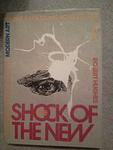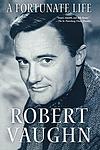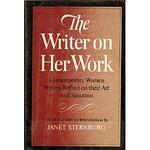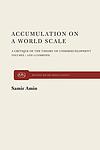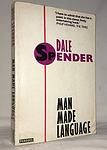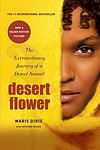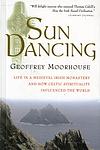The Greatest Australian, Unknown "Nonfiction" Books Since 1900
Click to learn how this list is calculated.
This list represents a comprehensive and trusted collection of the greatest books. Developed through a specialized algorithm, it brings together 300 'best of' book lists to form a definitive guide to the world's most acclaimed books. For those interested in how these books are chosen, additional details can be found on the rankings page.
Genres
Countries
Date Range
Reading Statistics
Click the button below to see how many of these books you've read!
Download
If you're interested in downloading this list as a CSV file for use in a spreadsheet application, you can easily do so by clicking the button below. Please note that to ensure a manageable file size and faster download, the CSV will include details for only the first 500 books.
Download-
1. Schindler's List by Thomas Keneally
The book tells the true story of a German businessman who saves more than a thousand Polish Jews during the Holocaust by employing them in his factories. The protagonist's transformation from a greedy high living war profiteer to a savior of lives forms the crux of the narrative. It offers a chilling yet inspiring account of the horrors of the Holocaust, human resilience, and the power of one individual to make a significant difference.
-
2. Night by Elie Wiesel
This book is a memoir of the author's experiences during the Holocaust, specifically in the Auschwitz and Buchenwald concentration camps. The narrative focuses on the relationship between a father and son under the most extreme circumstances, the loss of faith in God, humanity, and in each other, and the horrifying reality of the systematic genocide of six million Jews during World War II. The book is a poignant and stark examination of the depths of human evil and the enduring power of hope and survival.
-
3. Mythology by Edith Hamilton
This book is a comprehensive guide to ancient Greek, Roman, and Norse mythologies, providing detailed accounts of various gods, goddesses, heroes, and other mythological creatures. It includes well-known stories like the Odyssey and the Iliad, along with lesser-known tales, and analyzes their significance in the cultures they originated from. The book also delves into the origins of these myths and their influence on later civilizations, offering readers a deep understanding of ancient cultures and their belief systems.
-
4. The Female Eunuch by Germaine Greer
This book is a seminal feminist text that explores the oppression of women in society. It critiques the traditional roles and expectations of women in the mid-20th century, arguing that societal norms and conventions force women into a secondary, submissive role, effectively castrating them. The book encourages women to reject these norms and to embrace their own sexual liberation, arguing for the need for a revolution in the way women perceive themselves and their place in society.
-
5. Schindler's Ark by Thomas Keneally
The book is a historical novel based on the true story of a German industrialist who becomes an unlikely humanitarian amid the barbaric Nazi reign. When he witnesses the horrors inflicted upon the Jews, he is moved to save as many as he can by employing them in his factory. His actions, driven by courage and compassion, lead to the salvation of over a thousand Jewish workers from certain death in the Holocaust. The narrative explores themes of morality, survival, and the capacity for good in the face of overwhelming evil, as the protagonist navigates the complexities of war and the human spirit.
-
6. The Road from Coorain by Jill Ker Conway
"The Road from Coorain" is a memoir that chronicles the author's journey from her childhood on a remote sheep station in Australia, through her adolescence in war-ravaged Sydney, and finally, to her departure for America. The narrative explores themes of self-discovery, gender roles, and the power of education while providing a vivid portrayal of life in the Australian outback. The memoir also delves into the author's complex relationship with her mother and the impact of her father's death on their family.
-
7. The Shock of the New by Robert Hughes
"The Shock of the New" is an insightful exploration of modern art from the late 19th century to the present day. The book examines the cultural, social, and political forces that shaped and influenced the development of various art movements such as Cubism, Futurism, Surrealism, and Pop Art. It also provides an in-depth analysis of the works of prominent artists who played pivotal roles in these movements. The book serves as a comprehensive guide to understanding the complexities and nuances of modern art.
-
8. A Fortunate Life by A.B. Facey
"A Fortunate Life" is a memoir that chronicles the extraordinary life of a man who overcame immense hardships and adversity to find happiness and contentment. From his humble beginnings in rural Australia to his experiences as a soldier in World War I, the author shares his remarkable journey filled with poverty, loss, and resilience. Despite facing numerous challenges, he remains optimistic and grateful for the opportunities life has presented him, ultimately proving that a fortunate life is not defined by material wealth, but by the strength of the human spirit.
-
9. The Writer on Her Work by Janet Sternburg
"The Writer on Her Work" is a collection of essays by various female authors who discuss their experiences, challenges, and perspectives on writing. The book explores the complexities of being a woman in the literary world, shedding light on topics such as gender bias, the struggle for recognition, and the balance between personal life and professional aspirations. It provides a unique insight into the creative process, revealing how these women navigate their craft amidst societal expectations and personal obstacles.
-
10. Tracks by Robyn Davidson
"Tracks" is a memoir that recounts the author's extraordinary journey across the Australian desert on camelback. The narrative provides vivid descriptions of the harsh desert landscape, the challenges faced during this nine-month, 1,700-mile trek, and the transformation of the author's personal character along the way. The book also explores her interactions with the indigenous Aboriginal people and their culture, and includes her reflections on solitude, self-discovery, and the human connection to nature.
-
11. All But My Life by Gerda Weissmann Klein
"All But My Life" is a poignant memoir of a young woman's six-year ordeal as a victim of Nazi cruelty. The narrative follows her life from a peaceful, upper-middle-class childhood in Bielitz, Poland, through her horrifying experiences and loss during the Holocaust, to her miraculous survival and marriage to an American soldier. It is a story of courage, resilience, and the enduring power of hope.
-
12. Power Politics by Martin Wright
"Power Politics" is a comprehensive analysis of the dynamics of power in international relations. The book delves into the ways in which states interact with one another, the influence of power on these interactions, and the role of both military and economic strength in determining political outcomes. It examines the balance of power theory, the impact of alliances, and the strategies nations employ to enhance their influence on the global stage. The author also explores the implications of power politics for world peace and the potential for cooperation among nations in an environment often characterized by competition and conflict.
-
13. Stradbroke Dreamtime by Oodgeroo Noonuccal
"Stradbroke Dreamtime" is a collection of autobiographical stories and traditional Aboriginal tales that weave together the personal experiences of an Indigenous Australian woman with the cultural heritage of her people. The book offers a window into the author's childhood on Stradbroke Island, sharing memories of family life, the natural world, and the impact of colonialism. Alongside these reflections, the work preserves a number of Dreamtime stories, which are central to Aboriginal spirituality and identity, passing on the wisdom and traditions of her ancestors through narratives that celebrate the connection between the land and its inhabitants.
-
14. E=Mc2 by David Bodanis
The book provides a layperson-friendly explanation of the world's most famous equation, delving into the history, science, and people behind its development. It explores the biographies of the scientists who contributed to our understanding of energy and mass, including the equation's originator, and the practical and philosophical implications of the equation's assertion that energy and mass are interchangeable. The narrative also discusses the equation's role in the development of atomic energy and its impact on modern physics, offering an accessible journey through the annals of scientific thought and the revolutionizing discoveries that shape our understanding of the universe.
-
15. Accumulation On A World Scale by Samir Amin
"Accumulation On A World Scale" by Samir Amin is a thought-provoking analysis of the global capitalist system and the dynamics of accumulation. Amin explores the historical development of capitalism, its inherent contradictions, and the ways in which it perpetuates inequality and exploitation on a global scale. He argues that the capitalist system is fundamentally flawed and unsustainable, offering alternative perspectives on economic development and proposing radical changes to create a more equitable and just world.
-
16. The Tyranny Of Distance by Geoffrey Blainey
"The Tyranny of Distance" explores the impact of geographical isolation on Australia's history, economy, and society. Blainey delves into how the vastness of the continent has shaped the country's development, from the challenges faced by early settlers to the struggles of maintaining connections with the rest of the world. Through a comprehensive analysis, the book highlights the unique circumstances and opportunities that arise from Australia's geographical position, ultimately offering a thought-provoking perspective on the nation's past and future.
-
17. Man Made Language by Dale Spender
The book in question explores the concept that language is not a neutral medium of communication but rather a man-made construct that reflects and perpetuates the patriarchal structure of society. It argues that the way language is used and structured inherently privileges male perspectives and marginalizes women, influencing perceptions and reinforcing gender inequalities. Through a critical examination of linguistic practices, the text challenges readers to recognize the biases embedded in everyday language and consider the implications these have on women's experiences and the broader social power dynamics.
-
18. An Imagined World by June Goodfield
"An Imagined World" is a poignant exploration of the human condition, set against the backdrop of World War II. The narrative delves into the life of a young woman who, amidst the chaos and destruction of the war, finds herself in a remote English village. There, she grapples with the complexities of love, loss, and the search for personal identity. As she interacts with the villagers and refugees who have also sought sanctuary, the protagonist confronts the harsh realities of the world outside while navigating the intricate web of human relationships and the enduring hope for a better future. The book is a testament to the resilience of the human spirit and the power of imagination as a source of comfort and escape in times of turmoil.
-
19. The Padārthatattvanirūpaṇam Of Raghunātha śiromaṇi by Karl H. Potter
"The Padārthatattvanirūpaṇam of Raghunātha Śiromaṇi" is a critical examination and translation of a seminal work in Indian philosophy by Raghunātha Śiromaṇi, who was a prominent figure in the Navya-Nyāya school. This book, authored by Karl H. Potter, provides an in-depth analysis of Raghunātha Śiromaṇi's thoughts on metaphysics, focusing on the nature of reality and categorization of existence. Potter's work not only translates the original text but also contextualizes it within both historical and philosophical frameworks, offering insights into the development of Indian philosophical thought and its intricate argumentative techniques.
-
20. Averroes by George F. Hourani
This book provides a comprehensive study of Averroes, a seminal Islamic philosopher from the medieval period, known for his profound influence on both the Islamic and Christian intellectual worlds. The text delves into Averroes' life, his philosophical and theological ideas, and particularly his commentaries on Aristotle, which played a crucial role in shaping medieval scholasticism. The author explores how Averroes' attempts to harmonize philosophy with Islamic theology sparked significant debates and how his ideas were received, critiqued, and integrated into European thought, thereby leaving a lasting legacy on the development of Western philosophy and science.
-
21. My Place by Sally Morgan
"My Place" is a poignant autobiographical account that traces the personal journey of an Aboriginal woman in Australia as she uncovers her family's past and her own cultural identity. Through a series of interviews and personal reflections, the narrative delves into the experiences of her mother, grandmother, and great-uncle, revealing the hidden stories of displacement, suffering, and resilience that were kept secret due to the shame and stigma associated with their Aboriginal heritage. The book is a powerful exploration of the impact of colonialism and racism on individual lives and serves as a testament to the strength of family bonds and the reclaiming of one's history and sense of self.
-
22. The Samaritan Treasure by Marianne Luban
"The Samaritan Treasure" is an intriguing historical novel that delves into the ancient world, weaving a tale of mystery and adventure around the biblical account of the Good Samaritan. The narrative follows an archaeologist who stumbles upon a clue to the legendary treasure of the Samaritans, leading to a thrilling quest that spans continents and centuries. As the protagonist deciphers ancient texts and navigates dangerous liaisons, the story explores themes of faith, cultural heritage, and the enduring allure of hidden riches. The novel is a blend of meticulous historical research and imaginative storytelling, offering readers a captivating journey through time and the human spirit's quest for discovery.
-
23. Desert Flower by Waris Dirie, Cathleen Miller
"Desert Flower" is a powerful autobiography that tells the story of a girl born into a nomadic tribe in the Somali desert. The girl, subjected to the brutal tradition of female genital mutilation at a young age, escapes an arranged marriage at 13 and ends up in London, where she works various jobs before being discovered as a model. Her rise to fame in the fashion industry is juxtaposed with her personal journey to raise awareness about the harmful cultural practice she endured and advocate for its eradication.
-
24. The Man Who Loved Only Numbers by Paul Hoffman
"The Man Who Loved Only Numbers" is a captivating biography that delves into the life of a brilliant mathematician. From his early years as a child prodigy to his groundbreaking contributions in number theory, the book explores the eccentricities and obsessions that consumed his life. With a unique blend of mathematical concepts and personal anecdotes, the biography paints a vivid portrait of a man who was truly devoted to the world of numbers.
-
25. Sun Dancing by Geoffrey Moorhouse
"Sun Dancing" presents a vivid tapestry of medieval Irish monasticism, combining historical facts with imaginative storytelling. The book delves into the austere and spiritually intense lives of monks on Skellig Michael, a remote island off the Irish coast, during the early centuries of Christianity in Ireland. Through a blend of narrative and analysis, the text explores the harsh realities of monastic life, the cultural and religious contributions of these communities, and the broader context of Irish and European history during this period. The author weaves together the daily routines, spiritual practices, and legendary tales of these monks, providing a window into a world where faith and endurance converge amidst the isolation of the Atlantic Ocean.
Reading Statistics
Click the button below to see how many of these books you've read!
Download
If you're interested in downloading this list as a CSV file for use in a spreadsheet application, you can easily do so by clicking the button below. Please note that to ensure a manageable file size and faster download, the CSV will include details for only the first 500 books.
Download





